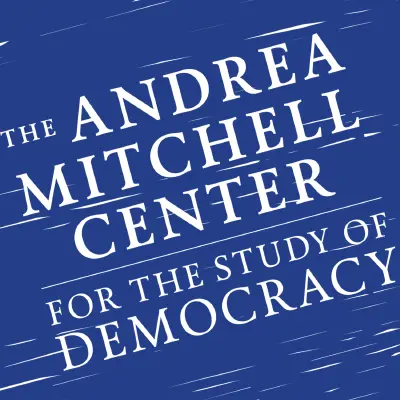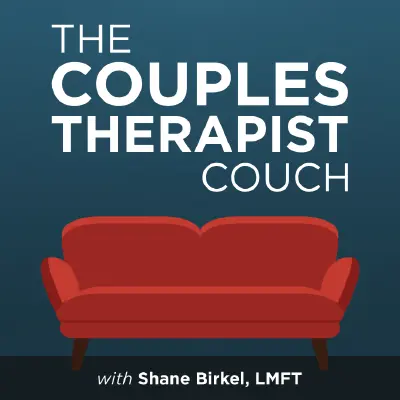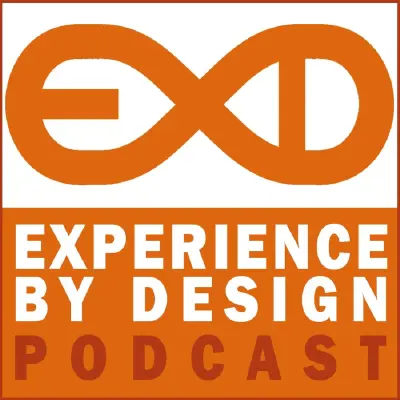Podcasts about Social Sciences
Episodes about Social Sciences

Jul 11, 2025
Laurie Denyer Willis, "Go with God: Political Exhaustion and Evangelical Possibility in Suburban Brazil" (U California Press, 2023)
New Books in Anthropology ❭
Through deep attention to sense and feeling, Go with God grapples with the centrality of Evangelical faith in Rio de Janeiro's subúrbios, the city's expansive and sprawling peripheral communities. Based on sensory ethnographic fieldwork and attuned to religious desire and manipulation, this book shows how Evangelical belief has changed the way people understand their lives in relation to Brazil's history of violent racial differentiation and inequality. From expressions of otherworldly hope to political exhaustion, Go with God depicts Evangelical life as it is lived and explores where people turn to find grace, possibility, and a future.
Mentioned in this episode:
Denyer Willis, Laurie. 2018. “‘It smells like a thousand angels marching’: The Salvific Sensorium in Rio de Janeiro’s Western Subúrbios.” Cultural Anthropology 33, no. 2: 324–348.
Laurie Denyer Willis is Senior Lecturer in Social Anthropology at the University of Edinburgh.
Liliana Gil is Assistant Professor of Comparative Studies (STS) at The Ohio State University.
Learn more about your ad choices. Visit megaphone.fm/adchoices
Support our show by becoming a premium member! https://newbooksnetwork.supportingcast.fm/anthropology
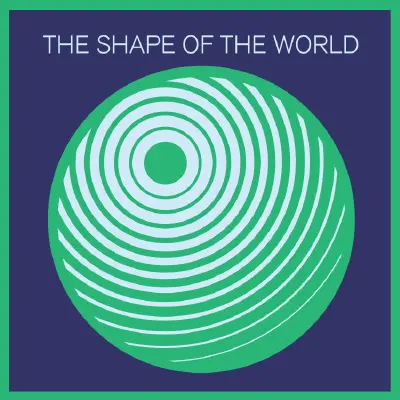
Daniel Holz studies black holes, gravitational waves, and cosmology, all while also running the Existential Risk Laboratory at the University of Chicago.
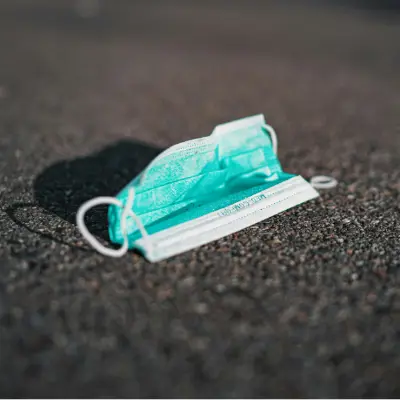
Jul 10, 2025
Episode 7.3: Rethinking the COVID Era: A Conversation with Frances Lee and Stephen Macedo
The Andrea Mitchell Center Podcast ❭
Interviewer: MATTHEW ROTH. When the Sars-CoV-2 spread across the world in the spring of 2020, it triggered unprecedented lockdowns in nearly every country, including democracies where such drastic measures were previously considered unlikely to be feasible. The hope was that the virus could be stopped and eventually eliminated, and that deaths could be minimized in the meantime. In their new book, In Covid’s Wake: How Our Politics Failed Us, political scientists FRANCES LEE and STEPHEN MACEDO examine the sequence of decisions that led to these policies and conclude that not only did they not work as envisioned, but that the decision-making process itself was deeply flawed. In their conversation with historian Matthew Roth, the authors describe the pre-existing consensus among health officials, that non-pharmaceutical interventions (NPIs) would likely be counterproductive; how that consensus quickly flipped during the crisis, after which open debate was stifled; the political polarization that led to different measures in different U.S. states; and the reasons why the comparative, pre-vaccine mortality data from the states show no sign of that a more stringent approach helped.
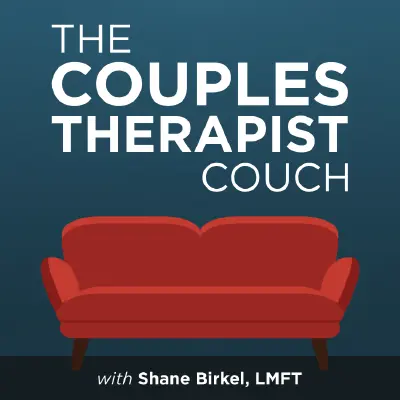
Jul 07, 2025
250: Encounter-centered Transformation (EcT) with Hedy Schleifer
The Couples Therapist Couch ❭
This episode is brought to you by Alma. Visit HelloAlma.com/ATPP to learn more Get the Couples Therapy 101 course: https://www.couplestherapistcouch.com/ Join the Couples Therapist Inner Circle: https://www.couplestherapistcouch.com/inner-circle-new Join The Couples Therapist Couch Facebook Group: https://www.facebook.com/groups/295562197518469/ In this episode, Shane talks with Hedy Schleifer about Encounter-centered Transformation (EcT). Hedy is a Master Relationship Builder, Motivational Speaker, and the Creator of EcT. Hear how EcT was born, how Hedy & Yumi used their relationship as a lab, the unique workshops she’s facilitated around the world, the different types of listening, and EcT-inspired exercises you can do with your clients. To learn more about Hedy Schleifer, visit: HedySchleifer.com You can also listen to Hedy on Episode 19 & Episode 71 of The Couples Therapist Couch
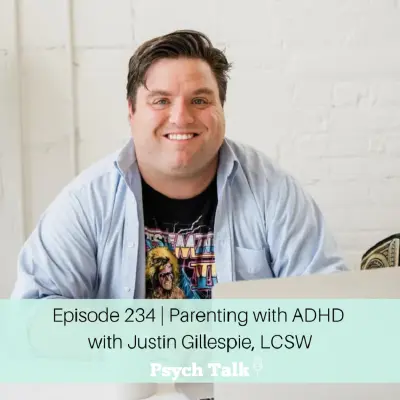
Jul 07, 2025
Episode 234 | Parenting with ADHD with Justin Gillespie, LMSW-Clinical, ADHD-CCSP
Psych Talk ❭
In today's episode of Psych Talk I chat with Justin Gillespie, LMSW-Clinical, ADHD-CCSP about parenting with ADHD. Justin first shares his personal journey with ADHD and how he came to specialize in working with people with ADHD. He then defines what ADHD is, how it presents in adulthood, and some differences between childhood and adult presentations. We then discuss some ways and areas in which ADHD impacts functioning as an adult and how ADHD impacts parenting. Justin discusses some of the unique challenges that adults with ADHD face when it comes to parenting, as well as shares tips, tricks, and interventions adults with ADHD can implement when it comes to parenting.Connect with Justin:IG: @adhdtherapist_jayTikTok: @adhdtherapist_jayWebsite: https://superior-center.comHire a Coach Not a TutorLife Has No Purpose and then You DieConnect with Me:Follow me on IG @jessicaleighphdFollow the podcast on IG @psych.talk.podcastFollow me on TikTok @jessicaleighphdFollow me on Youtube Follow me on Threads @jessicaleighphdWelcome to Group Therapy PodcastJoin my Facebook community: Grow Through What You Go ThroughWays to Work With Me:Mind Over MatterLGBTQ+ Affirming MasterclassBe a guest on my podcastResources:Anti-Racism ResourcesLGBTQ+ Affirming ResourcesThe Helping Professional's Guide to Boundary SettingIntro/Outro MusicLife of Riley by Kevin MacLeodMusic License

Happy Fourth of July to everyone out there, as I record this on the day before the 4th. For those in the US, this is the day that we celebrate our independence from the British. No offense to our British listeners. But to be fair, we are not alone in our desire to kick the British out. Nice to see that we could put that ugliness behind us. Now we are happy to closely monitor Royal Family news, refurbish British shows to suit our own tastes, welcome musical acts, and occasionally drink tea and have small sandwiches. For those in other parts of the world, hope you are still able to celebrate July 4th as a good day. I am preparing to once again teach my course on employee experience. One of the challenges of teaching a general class is that you realize how much you could cover and how much there is to talk about. Also, things are rapidly changing the world of work which needs to be considered and covered. Despite all of these changes, there are constants that exist which form the foundation of employee experience. We might think that the more things change, the more they stay the same. To be successful in any experience design effort, we have to keep the fundamentals in mind.On this episode of Experience by Design, I welcome Brian Kurtz to the show to talk about his career in direct marketing. But Brian is about more than just direct marketing. Turns out that he started out as a film critic and film editor, even doing film reviews for the New York Times. That led him to pursue a PhD in English at Idaho State University. While that didn’t pan out, it did solidify his analytical approach to designing communications that resonate with target audiences no matter the method through which it is disseminated.We talk about all the changes that he has seen in his long career in direct marketing, including the changes happening today. We also explore how despair these changes, the fundamentals remain the same. He describes his book Overdeliver, and how we need to approach business not as a revenue event but as relationship events. People are more than lists and segments. To be successful in breaking through the noise, we need to design messages and content that connects. And we talk about the biggest challenges with being a baseball umpire.
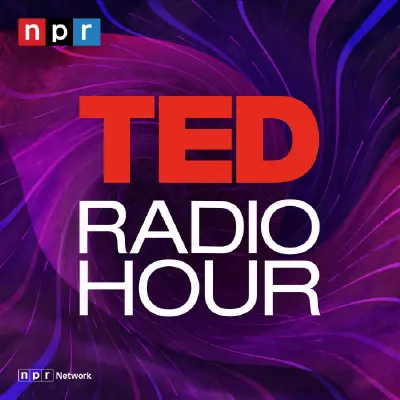
Whether you love or hate fashion, we all have to get dressed in the morning. And the industry affects us in complex ways. This hour, the outrageous, environmental and seedy sides of fashion. Guests include designer Machine Dazzle, supply chain expert Aparna Mehta, journalist Amanda Mull and supermodel Cameron Russell. Original broadcast date: September 6, 2024TED Radio Hour+ subscribers now get access to bonus episodes, with more ideas from TED speakers and a behind the scenes look with our producers. A Plus subscription also lets you listen to regular episodes (like this one!) without sponsors. Sign-up at: plus.npr.org/ted Learn more about sponsor message choices: podcastchoices.com/adchoicesNPR Privacy Policy

Jul 02, 2025
Ep 189: Burnout - signs and symptoms with Dr. Richard Duggins
My Pocket Psych: The Psychology of the Workplace ❭
In this episode of our 'Sustainable Leadership' series, we explore the antithesis of sustainable work: professional burnout. Richard is joined by Dr. Richard Duggins, consultant psychiatrist and psychotherapist, who is known as the 'Doctor's Doctor' due to his work with physicians experiencing burnout in the NHS. His recent book 'Burnout-free working' explores the topic in detail, demystifying burnout and explaining how recovery is possible. In this first part of a two-part interview, we establish what burnout actually is, explore the 'burnout cliff' concept, learn about the role of 'radiators' and 'drains' the key impact of organisational culture. Huge thanks to Dr. Richard Duggins for taking the time to join us for this discussion. Part two of the interview follows in the next episode. Thanks for listening! Resources for this episode Find out more about our Sustainable Leadership campaign here: https://www.worklifepsych.com/sustainableleadership Find out more about Dr. Richard Duggins here: https://www.linkedin.com/in/richard-duggins-dr/ Find Richard's book here: https://uk.jkp.com/products/burnoutfree-working
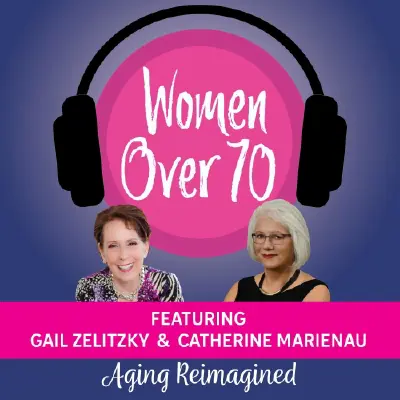
When you listen to Victoria (Vickie) Rock, 73, you would believe her life has never seen a difficult day. Yet, the truth is, at times it has been rocky. Turning lemons into lemonade is the perfect phrase to attribute to Vickie. Always upbeat, charitable, and giving, she works tirelessly to elevate each person, client and company that become part of her network.A career in court reporting led her to create a business of her own. When working until 2 or 3 a.m. in the morning became too much she sold out, along with her 75 member- team of court reporters and again could enjoy the basics of the business - meeting with clients, being in the courtroom and building her vocabulary with new and interesting words. Having been in this world for so many years, Vickie now teaches businesses how to tell their stories and win clients.Vickie is quick to give credit to those organizations along the way who have helped her grow: National Association of Women Business Owners (NAWBO), Women’s Business Development Center (WBDC) and Goldman Sachs 10,000 Small Business program. Her church and Center for Disabilities & Elder Law remain important organizations she supports.Enjoy our lives: How many Thanksgivings do we have left? - Victoria RockCONNECT WITH VICTORIA ROCK:Email: victoria@victoriarock.bizWebsite: Victoria Rock
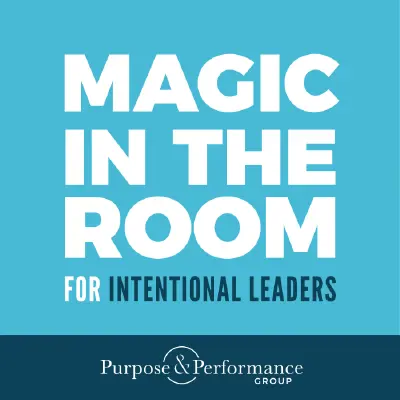
In this episode of "Magic in the Room," hosts Luke and Chris are joined by Sara Hardwick of Giftology to explore the concept of Return on Relationship. They discuss how investing in authentic, intentional relationships, both internally within teams and externally with clients and partners, can drive loyalty and long-term business outcomes. Sara shares her journey into the world of strategic gifting and highlights the philosophy behind Giftology, including the power of delight, personalized systems of care, and the importance of playing the long game in leadership and marketing. The conversation also introduces the Rich Relationship Society, a community built to help leaders implement these practices in meaningful ways. Credits: Follow Sara: https://www.linkedin.com/in/sarahardwick/ Learn more about Giftology: https://giftologygroup.com/ Giftology Book: https://www.amazon.com/Giftology-Increase-Referrals-Strengthen-Retention/dp/1619614332 This episode of Magic in the Room was recorded on-site in Bixby, Oklahoma Music by Evan Grim. Find his music on Apple Music.
